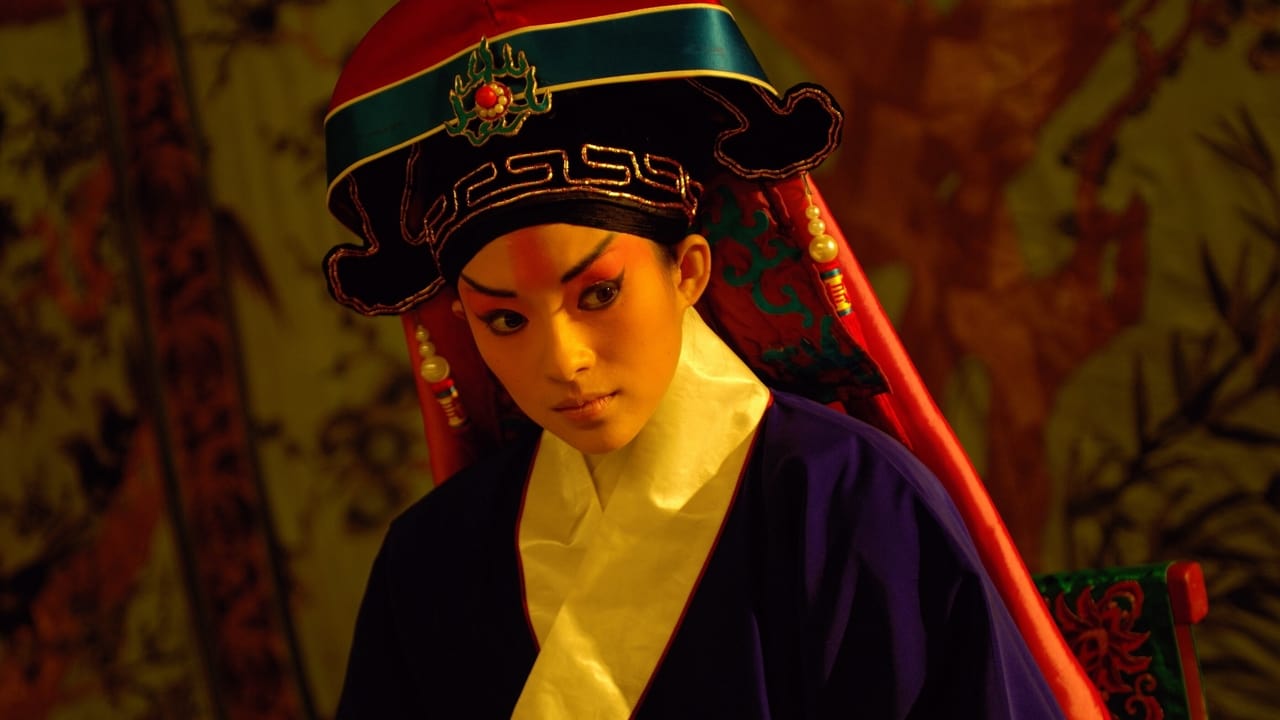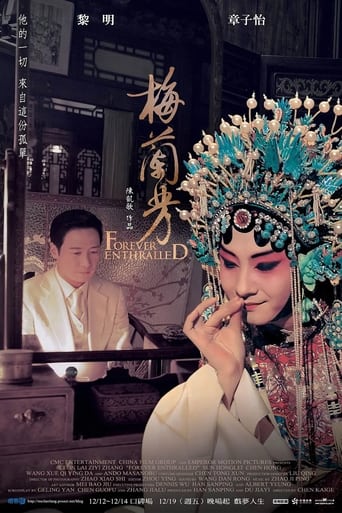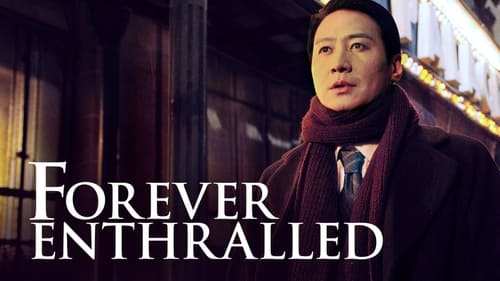TrueJoshNight
Truly Dreadful Film
Stoutor
It's not great by any means, but it's a pretty good movie that didn't leave me filled with regret for investing time in it.
Curapedi
I cannot think of one single thing that I would change about this film. The acting is incomparable, the directing deft, and the writing poignantly brilliant.
Brendon Jones
It’s fine. It's literally the definition of a fine movie. You’ve seen it before, you know every beat and outcome before the characters even do. Only question is how much escapism you’re looking for.
Rob Haines
I am really surprised by some of the negative reviews of this film. In my view this is to thoroughly underrate it. When I watched this on DVD, I did not know that it was directed by the same person who directed Farewell My Concubine (Kaige Chen) also seen on DVD quite a while ago. It is not the same film and it did not strike me as a weak regurgitation of FMC. The plot kept me engaged and it did not feel too long, in fact I would have liked to have known what happened afterwards. It is beautifully staged and the cinematography is excellent. How historically accurate the film is I'm not sure. If you read the Wikipedia article about Mei Lanfang, his love-life was rather more complicated (and productive) than portrayed. The major historical 'facts' I am sure are accurate. The portrayal of personal life, relationships and emotions must inevitably be more conjecture and some aspects have to be simplified. Nevertheless, I loved this film and it way exceeded my expectations. I also love Farewell My Concubine - in my opinion if you love that film you will most likely enjoy this one - though clearly other reviewers disagree!
DICK STEEL
I got to watch this trailer inadvertently when it was part of a montage sequence honouring Chen Kaige with the Akira Kurosawa Award during last year's Tokyo International Film Festival, and I was actually thrilled to have caught glimpses of it. I thought the boo-boys were out too early in lamenting Chen's choice of Leon Lai in the titular role, thinking that he would ruin what would be a decent biopic about one of China's greatest opera singer.To me, those fears were quite unfounded, as I felt Leon Lai actually did reasonably well when under the thick operatic makeup to transform himself for his stage persona, from Mei Wanhua to Mei Lanfang, where portrays only female characters. But of course if put side by side with Chinese actor Yu Shaoqun, Lai paled considerably as Yu was obviously the better of the two, portraying the younger Mei who found his true calling when opportunity came knocking on his door, and deciding to seize it, yet being mindful all the time of where his roots were.And the best parts were of course the first act, where Mei decides to up the ante and challenge his master, the then largest opera star Shi Sanyan (Wang Xueqi) to a show-down of sorts if you will. Under his master's wing, he finds himself somewhat stifled in not being able to explore his roles much further, given the master's fear that his thunder will be stolen. At the encouragement of maverick magistrate and future sworn brother / business manager Qiu Rubai (Sun Honglei), he finds some new found confidence to test waters while still keeping true to the core of his character, thus earning new praise, and given one's talent with nothing much to lose, one will go for broke - win and you win all, lose and you have really no reputation at stake, in contrary to his master.It's about control, or the lack thereof. From early on we learn that actors in the days of the crumbling of the Chinese monarchy that they do not have any respect, and have to play to the whims of those with power, money and fame. Even then the child actors have to pander to lords with a penchant for young boys. Mei does not buckle his self-worth, and is pretty clear that while he portrays ladies in more feminine terms than real ladies, that it does not make him easy fodder. And we follow through his life how he does not get to live the life he wants to lead, but rather according to both the rules and regulations of the stage, as well as the same off it in society. Be it instructions from his managers, his wife Zhifang (Chen Hong) or the Japanese occupiers, each seemingly want to exert an influence over his career and personal life, not so much for personal gain, but to propagate that legend and persona so carefully crafted over the years.Naturally Mei finds an avenue to fight back, and does so through an affair of the heart. While he portrays females on stage, he meets his equal in Meng Xiaodong (Zhang Ziyi), who is his mirror opposite, the best in the business in playing male characters. Together they blaze a trail of glory, and naturally leads to tongues wagging. While Zhang Ziyi may share top billing, in actual fact she's nothing more than a supporting role, coming in only in the middle portion to highlight Mei's need for escape from his rigid world.Much is said about the supporting actors doing a far better job than the leads, and that is true, in a nice way. My respect for the Chinese actors have grown from watching a number of indie and mainstream films, and I can't credit the likes of Sun Honglei, Chen Hong, Wang Xueqi and especially Yu Shaoqun in being nothing less than superb each time they come on screen to chew up the scenery. It's not really fair to say the leads acted poorly, because the supporting cast had raised the bar in delivery, which adds to the enjoyment of the film.I can never forget the really poor movie in The Promise which Chen Kaige made a couple of years back. The story was so bad it allowed the special effects to run wild in trying to salvage the show. There aren't a lot of Chinese bio-pics (or at least those I have watched) in recent years that were non-martial arts related (think Ip Man, Wong Fei-Hung, Fong Sai-Yuk, Huo Yuanjia etc), and somehow I'm glad Chen Kaige found his mojo back to helm this, and in far elegant terms that I'm now better convinced to check out more of his filmography. He was able to shift gears quite effortlessly between distinct acts of the narrative, which straddled a timeline from after the Qing Dynasty to after the surrender of the Japanese. However, there might seem to be a quantum leap in addressing issues towards the last 30 minutes, but for everything else, it was paced quite evenly to keep you interest from waning.Forever Enthralled has all the ingredients of a credible epic, from beautiful set designs and art direction, to a wonderful soundtrack and elegant costumes, Chen Kaige does not scrimp in making this film look and feel just like it would back in those days of sheer opulence. While opera may be an artform that is dwindling here, don't let the Peking Opera focus here put you off, as you just might find some reason to want to watch the real thing if you have the opportunity to. Definitely recommended.
samuelding85
Chinese director Chen Kaige did the Chinese proud by directing Farewell My Concubine in 1993, which turns out to be the first Chinese film to receive an Academy Award nominations for Best Foreign Features (1994) and brings home The Golden Palm Awards in 1994 Cannes Film Festival.Farewell tells us a story of 2 Peking opera actors and the bond shared between both from the 1930's till the early 90's. Today, Chen wants to bring the magic back again, and here we have his latest feature, Forever Enthralled. Also known as Mei Lanfang in Mandarin, the film serves to be a tribute to the late Peking opera master, Mei Lanfang, who was not only well known for portraying female roles in the play, but also being the first Chinese actor to performed in America.Sad to the say, the magic seems to fail despite placing lots of effort to bring the life story of the late Peking opera master to screen.In a duration of 147 minutes, you will see the life of Mei in three stages: teenager, young adult in his 20's, and a more matured Mei in his 40's. Featuring Leon Lai as Mei in his adulthood and Sun Honglei as Qiu Rubai, the movie should be renamed as 'Mei Lanfang and Qiu Rubai - The Two Sworn Brothers'. This can be supported with Qiu Rubai attracted and bedazzled with Mei's skills in portraying a female role, which leads him to support Mei's career in various ways.From the young Mei Lanfang competing with his actor grandfather, short romance with fellow actress Meng Xiaodong (Zhang Ziyi) after married to another fellow actress Fu Zhifang (Chen Hong), to how he refused to performed for the Japanese during World War 2, Qiu Rubai has always been with Mei Lanfang in all ways.The main highlight of the film which keeps the audience going on for more will be the first 50 minutes of the film. A teenage Mei (Yu Shaoqun) was a famous actor, which makes him to go a path less traveled by changing the style in a Peking opera. The conflict between his grandfather and Mei shows how Mei wants to change the presentation of the opera, so as to live up to the words left by his great grandfather, where Mei is to bring Peking opera to a new level where actors gained their respects. By defying his grandfather's wishes and creates a new play, Mei has become more famous than ever, which leads him to his stardom for the next few decades.This is the only part of the story that really lives up to the title. The moment Mei reaches adulthood, the story has fall flat, unfortunately. Even when Chen Kaige wants to highlight the important point of Mei being the first Chinese actor to perform in America, it fails to salvage the remaining parts of the story. Being the most important point of the story, it was given a mere 10 minutes to summarize Mei's fame in America. Yu Shaoqun shines as a young Mei, where not only he was given ample time to portray his inner struggle, but also appears in various plays in the film. Leon, however, doesn't get much chance to put on the thick makeup and impersonates the beauties of the past in his play.Too much focuses were given to Mei's romance with Meng, and how Mei refused to performed for the Japanese. Zhang's appearance of Meng takes up only 30 minutes of the story, despite being highlighted as the leading actress. Apart from a bad dubbed over during her opera performances, Zhang wasn't given much chance to explore her role. Chen Hong gets a bigger share in terms of appearances, but less lines. Her appearance as a middle-aged Fu Zhifang is a replacement of younger Fu Zhifang, portrayed by Gillian Chung. Chung's appearance in the film has been removed after the nude photo scandal in 2008, which has unfortunately, damaged part of the film. One will not know how Mei befriends Fu and in the later years of their life, husband and wife.It was Sun Honglei who makes the film watchable. Playing Qiu Rubai from an adult to an elderly, his influence towards Mei has changed Mei's life, which was described in detail.It is not surprising that one will compare Forever Enthralled with Farewell My Concubine. In all, Mei Lanfang shines in the real life, but Farewell My Concubine will still be everyone's favorite in reel life.
smallbob
I went in not expecting much as my Chinese isn't perfect yet and I knew it was going to be a chore trying to keep up with the words but I found it wasn't too bad to understand. In the end though I just didn't really see it as that good of a film, the script was mediocre and the acting was at times overly dramatic, even for Chinese films. I thought it was just me at first as the girl next to me was crying during the film but my friend who was also watching turned to me and said "That was terrible..." and she is Chinese so i think it really was just not very good. My Chinese is coming along and I've started to really enjoy watching Chinese movies in Chinese if only for the interest of testing my language skills but this was just not worth it. I would have preferred to go see one of the others I've already seen than to sit through this one.


